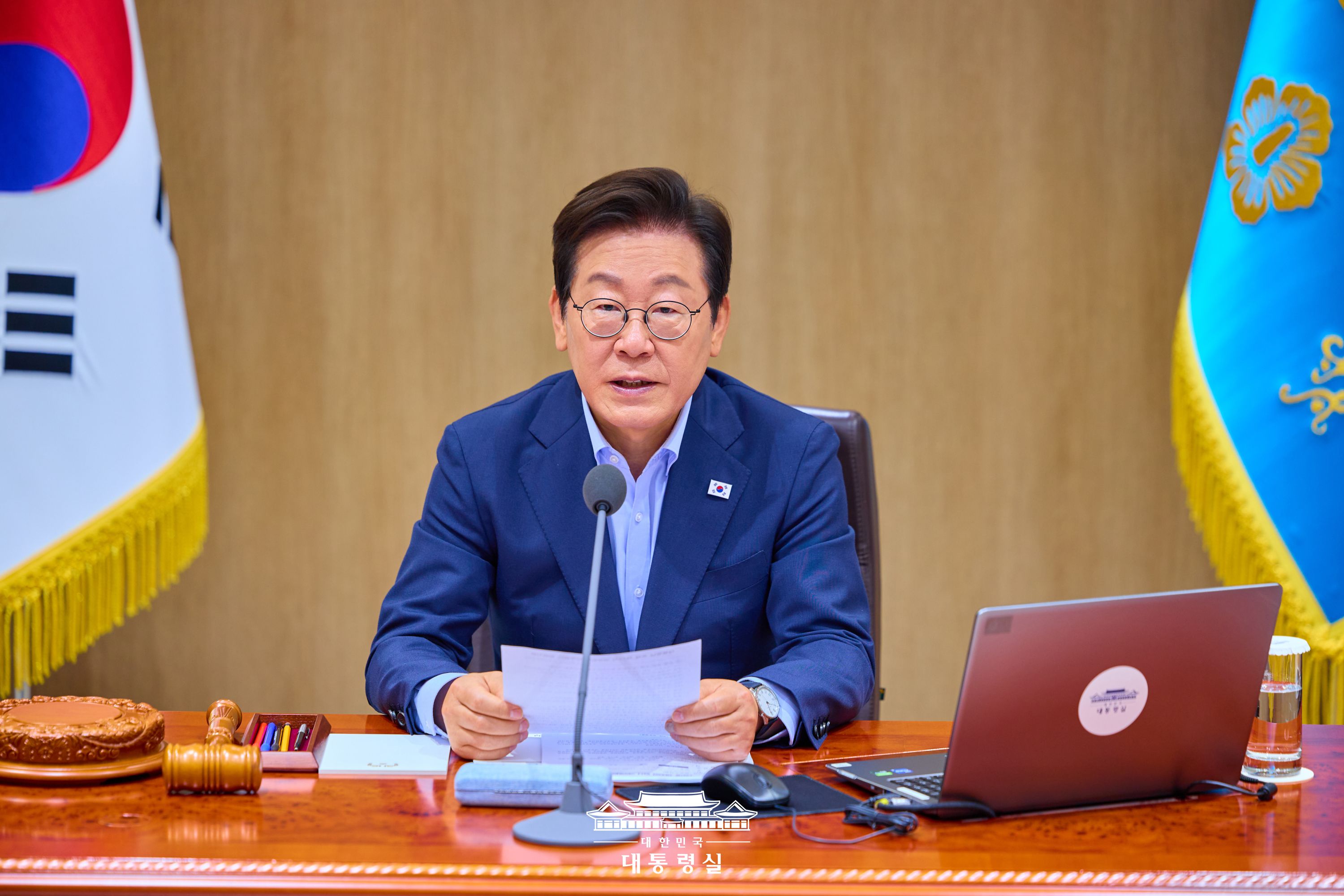- 한국어
- English
- 日本語
- 中文
- العربية
- Español
- Français
- Deutsch
- Pусский
- Tiếng Việt
- Indonesian

President Lee Jae Myung on Aug. 25 chairs a Cabinet meeting at the presidential office in Seoul. (Office of the President)
By Xu Aiying
The national budget for 2026 is an estimated KRW 728 trillion, up 8.1% from KRW 673 trillion this year and the first time in history for the figure to break KRW 700 trillion.
The Cabinet on Aug. 29 in a meeting approved next year's budget and a 2025-29 national plan for fiscal management.
The main targets of investment include a technology-driven, hyper-innovative economy; a society based on strong fundamentals and growth for all; and diplomacy and security centered on national security and interests. In line with the economic growth strategies of the Lee administration announced on Aug. 22, the plans seek to help Korea develop into a global leader and ensure smooth implementation of core tasks.
The focus of the higher budget is artificial intelligence (AI), research and development (R&D), high-tech industries and development of local governments.
To make the country one of the world's top three AI powers, the related budget will be more than tripled from KRW 3.3 trillion this year to KRW 10.1 trillion next year. The allocation for R&D was raised 19.3% to KRW 35.3 trillion.
Funds for core technologies in the cutting-edge sectors of AI, bio, content, defense, energy and manufacturing will also be raised to achieve tangible results.
To revive Hallyu (Korean Wave), KRW 5.7 trillion was earmarked, up 35.7% from KRW 4.2 trillion last year, to expedite Korea's ascension into one of the world's top five global cultural powers.
A main emphasis of the 2026 budget is growth of provincial regions, with the amount to reach KRW 29.2 trillion, a huge leap from KRW 19 trillion this year. The budget for key national universities was also more than doubled from KRW 400 billion to KRW 900 billion to foster them as education and research hubs linked to regional strategic industries.
Support for specialized regional projects was also more than tripled to KRW 1 trillion from KRW 300 billion.
The budget bill and the national plan for fiscal management on Sept. 3 will be submitted to the National Assembly. Passage is expected in December after screening by each standing committee and the Special Committee on Budget and Accounts.
xuaiy@korea.kr